

InternetLab, an independent research center on law and technology, with the support of the USP Law School, invites you to the 8th International Congress on Fundamental Rights and Criminal Procedure in the Digital Age. The in-person event will take place between November 27 and 29, 2024, in the Rubino de Oliveira auditorium at the USP Law School. Sign up now!
Address: Largo São Francisco, 95 – Centro, São Paulo. Rubino de Oliveira Auditorium, 1st floor
The International Congress on Fundamental Rights and Criminal Procedure in the Digital Age has been organized by InternetLab with the support of the USP Law School since 2017. The annual event hosts debates on the intersection between criminal procedure and technology and addresses the challenge of keeping criminal guarantees up to date.
The eighth edition of the Congress will be dedicated to the topic of “Criminal Investigation and New Surveillance Technologies”, and will deal with topics such as artificial intelligence and criminal justice; digital evidence; open source monitoring, international regulation of cybercrime and the use of spyware technologies, with a focus on the ADPF 1143.
The conference will feature panelists who are experts in privacy, academics from the fields of criminal law and criminal procedure, state agents and representatives from the private sector and civil society. Professor Fionnuala Ní Aoláin, from the University of Minnesota, will give the opening keynote and the closing speech will be given by the Ministry of Justice’s Digital Law Secretary, Lílian Cintra de Melo.
The event will also include the launch of the seventh volume of the book “Fundamental Rights and Criminal Procedure in the Digital Age: doctrine and practice in debate”, which brings together articles and contributions from the VII Congress, held in 2023.
Fill in the form below to confirm your participation in the event, which will be held exclusively in person. Certificates will be awarded to participants who attend at least 70% of the panels, roundtables, and keynote sessions.
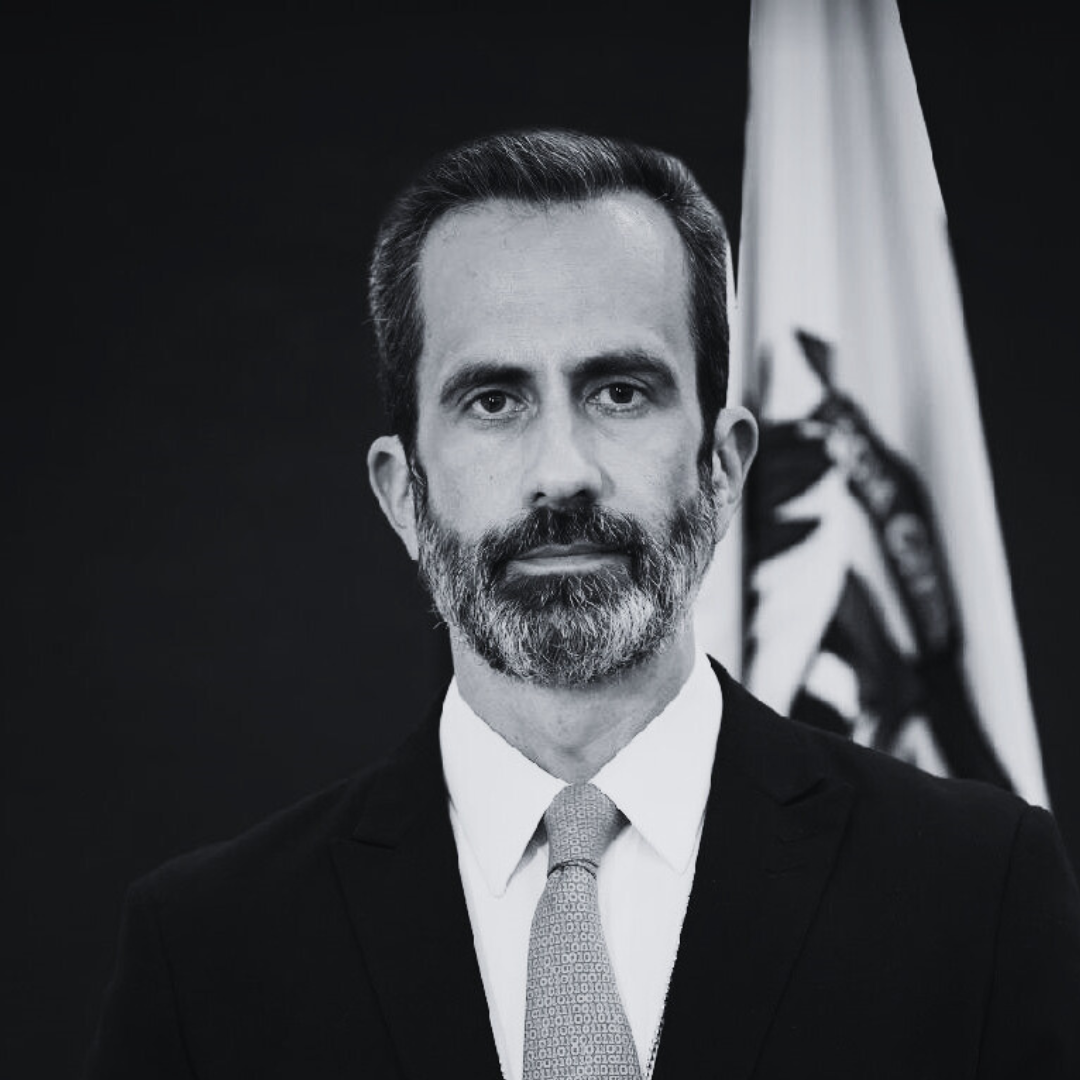
Graduated in Law from the Pontifical Catholic University of Campinas. Police Chief in the State of São Paulo since 2002. Currently in charge of the Training Courses Department at the Civil Police Academy of São Paulo. Postgraduate in Constitutional Law from the Superior School of Constitutional Law. Postgraduate in Criminal Law and Criminal Procedure from CERS – Renato Saraiva Teaching Complex. Specialist in Foundations of Probative Reasoning from the University of Girona. Postgraduate in Judicial Police and Criminal Justice System from the Civil Police Academy of São Paulo. Master in Evidence Law from the University of Barcelona. Professor of Criminal Law, Criminal Procedure, and Criminology at the Superior School of Law and PROORDEM (Campinas Unit). Professor of Criminal Procedure in the undergraduate program at Unità Faculty, in Campinas. Professor of Criminology at the Civil Police Academy of São Paulo. Member of the Research Group “The New Law of Evidence: Epistemic, Procedural, and Social Foundations.”
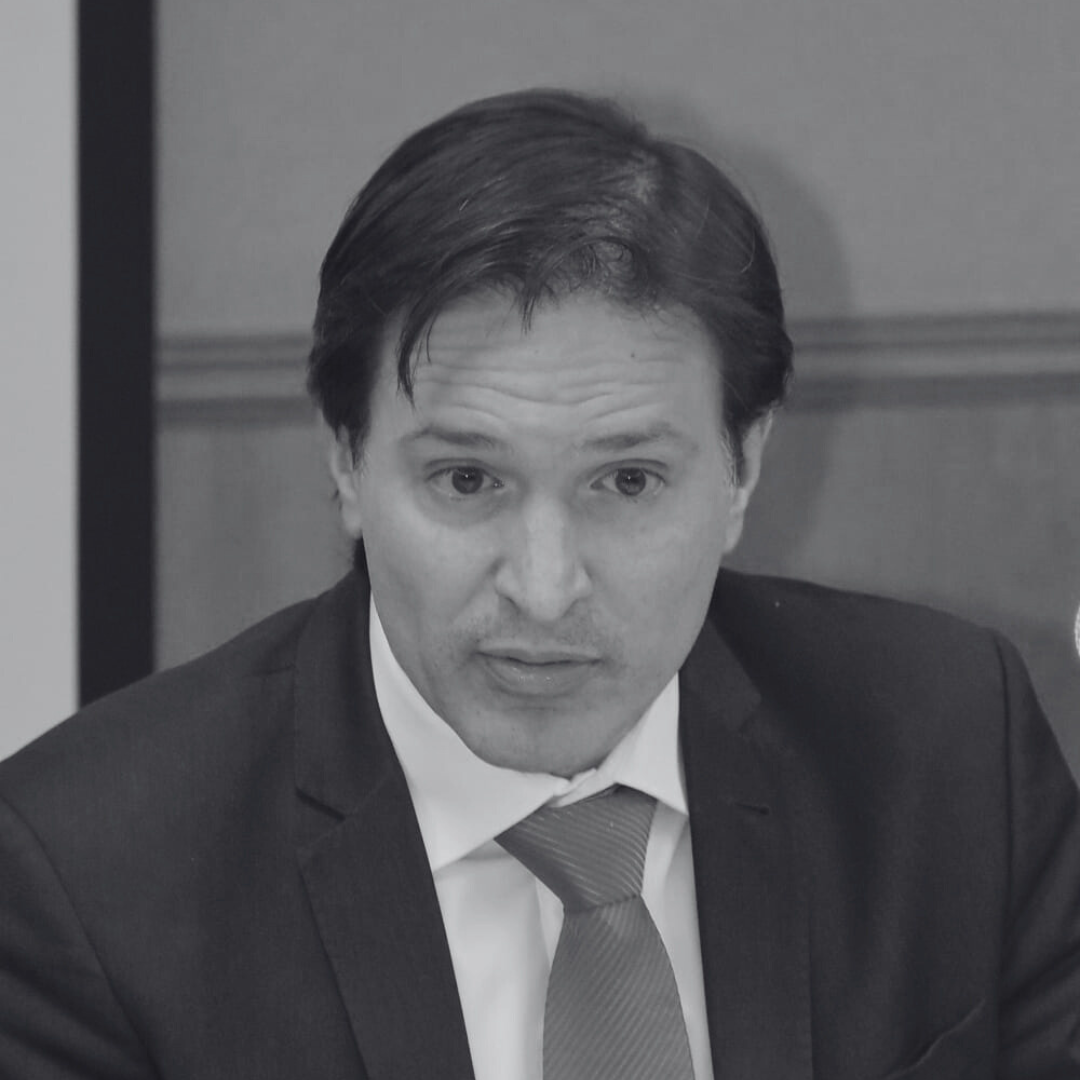
Professor in Criminal Procedural Law at the Faculty of Law of the University of São Paulo (USP). Holds a Master’s and PhD in Criminal Procedure from USP. Also holds a Master’s degree from the Pablo de Olavide University in Spain. Federal Prosecutor.
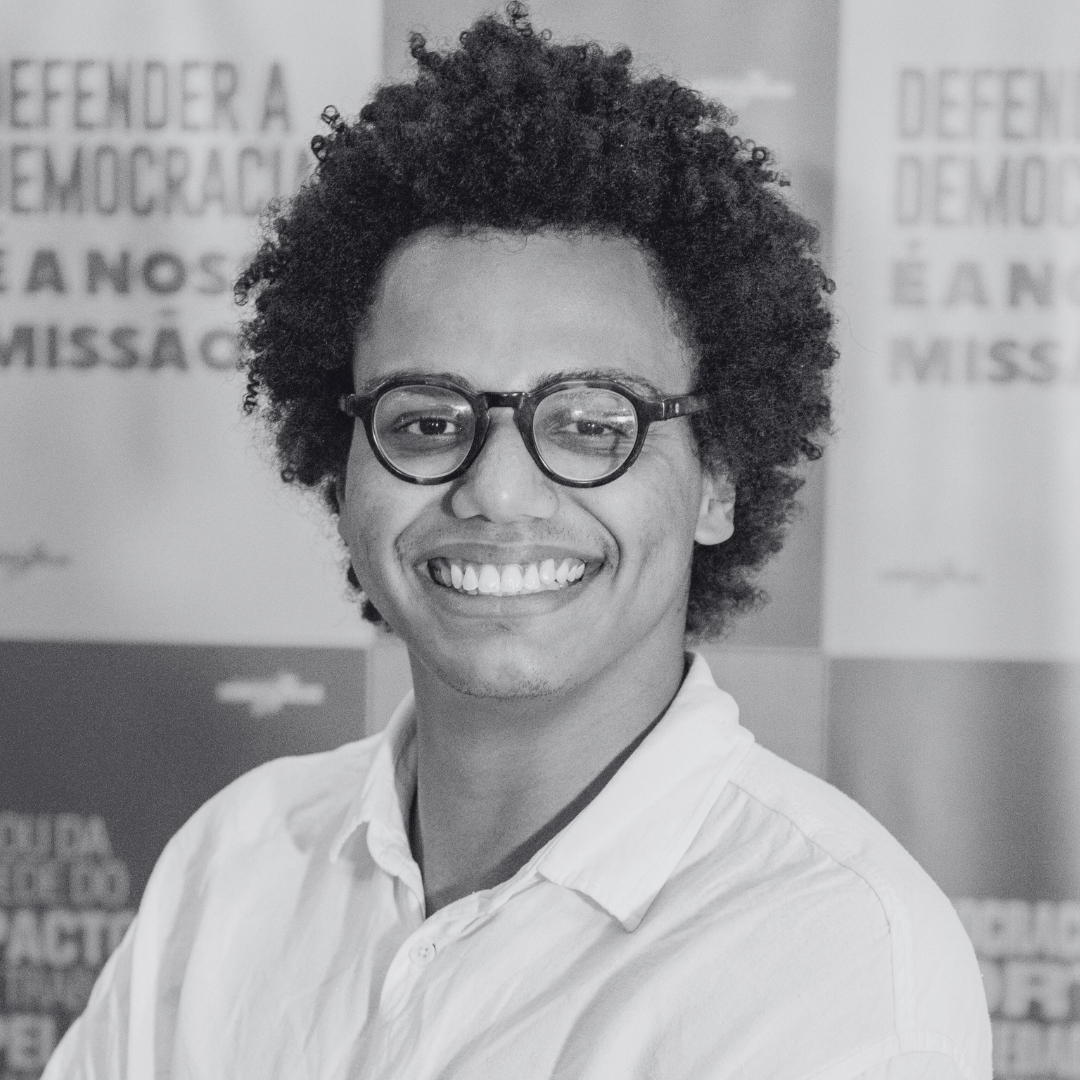
Arthur Mello is the Advocacy Coordinator for “Pacto pela Democracia”, a coalition that brings together more than 200 civil society organizations. He chaired the “Movimento Acredito” and has worked as a consultant on electoral campaigns and for NGOs focusing on government relations and advocacy. He was selected by UWC Brasil (United World Colleges), a global movement to train young people, having studied at UWC Li Po Chun in Hong Kong. He was also vice-president of the initiative and participated in the Semester at Sea program of the University of Colorado and was recognized as an “Architect of Hope” in Ari Satok’s book.
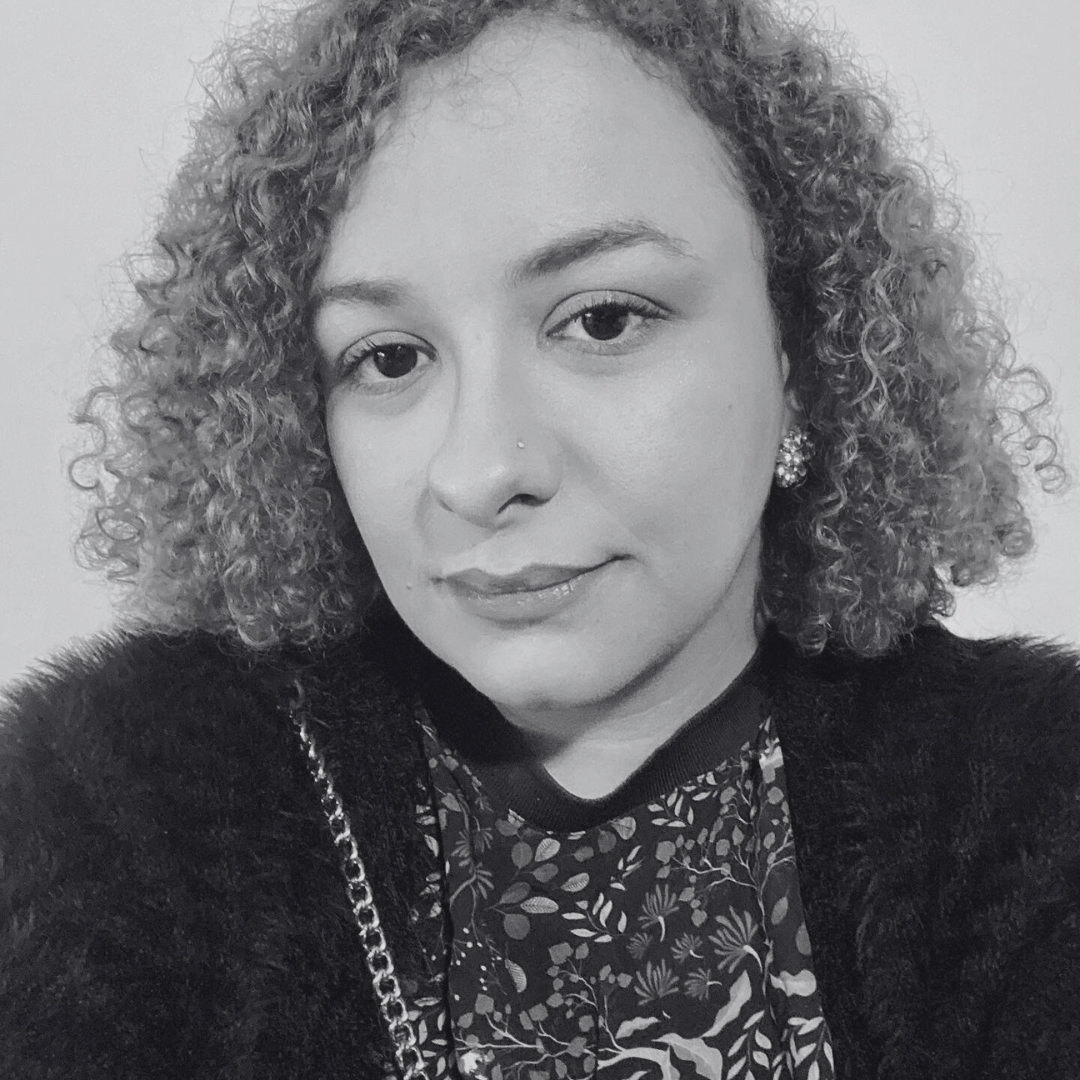
Senior Transparency Analyst at Transparência Brasil and master’s candidate in Political Science at DCP/USP. She works on initiatives aimed at developing public transparency and social control over public power in Brazil. In the field of digital rights, she develops activities and projects focused on algorithmic transparency, particularly related to artificial intelligence and surveillance technologies. She represents Transparência Brasil in the “Coalizão Direitos na Rede” (Rights in Network Coalition) and has collaborated with Global Partners Digital in contributing to international instruments, such as the UN’s Global Digital Compact and the report “Right to Privacy in the Digital Age” from the Office of the United Nations High Commissioner for Human Rights (OHCHR).

Holds a Master’s and PhD degrees in Procedural Law from the Faculty of Law at the University of São Paulo. University professor. Lawyer. Compliance Manager.
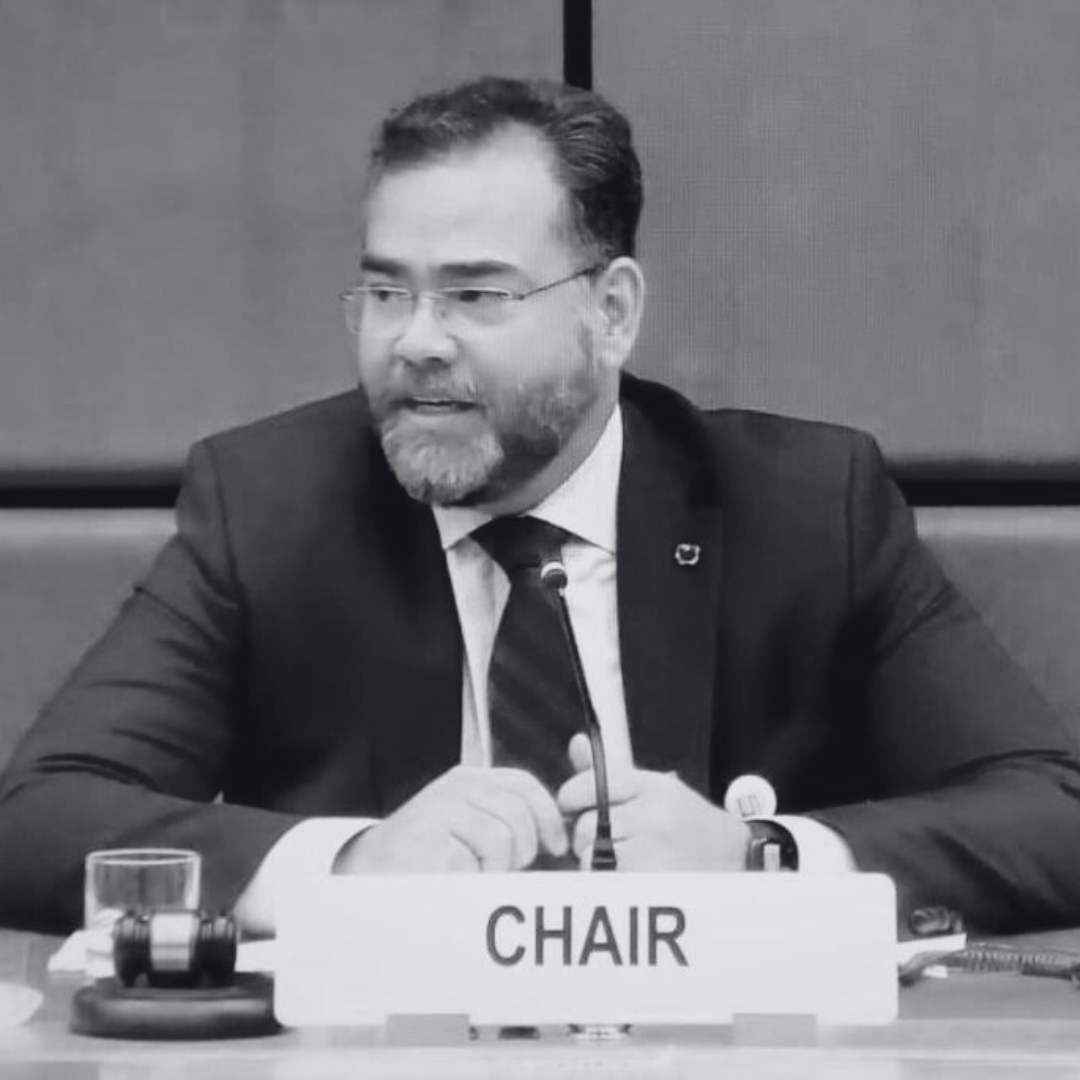
Brazilian diplomat since 2003, with experience in embassies in New Delhi, Buenos Aires, Pretoria and Vienna. His career has been focused on international security and combating transnational crime, having headed the General Coordination for Combating Transnational Crime at the Ministry of Foreign Affairs. He is the vice-president of the Ad Hoc Committee that recently adopted the UN Convention on Cybercrime and led the Brazilian delegations throughout these negotiations. He has represented Itamaraty on several government councils, including the Financial Activities Control Council (COAF) and the Brazilian Intelligence System Council (CONSISBIN). He holds a degree in International Relations from the University of Brasilia and a Master’s degree in Diplomacy from the Rio Branco Institute. In 2023, he defended his thesis at the Rio Branco Institute on the subject of Brazil and the Council of Europe Convention on Cybercrime (Budapest Convention). He currently heads the Central and West Africa Division at the Ministry of Foreign Affairs and is pursuing a postgraduate degree in Digital Law and Artificial Intelligence at IDP in Brasilia.

Professor Fionnuala D. Ní Aoláin is a University Regents Professor; holder of the Robina Chair in Law, Public Policy, and Society; and faculty director of the Human Rights Center at the Law School. She is concurrently a professor of law at the Queen’s University of Belfast, School of Law.
In 2017, Professor Ní Aoláin was appointed by the United Nations Human Rights Council as United Nations Special Rapporteur on the promotion and protection of human rights and fundamental freedoms while countering terrorism. In this capacity she worked closely with states and United Nations entities to advance human rights protections in some of the most difficult contexts globally. She was re-elected by States for a further three-year term in 2020, and her term ended in November 2023. She was elected to the International Commission of Jurists in 2023. In 2024, Professor Ní Aoláin was appointed Honorary King’s Counsel (KC Hon) by His Majesty The King of England. This is a life-time appointment.
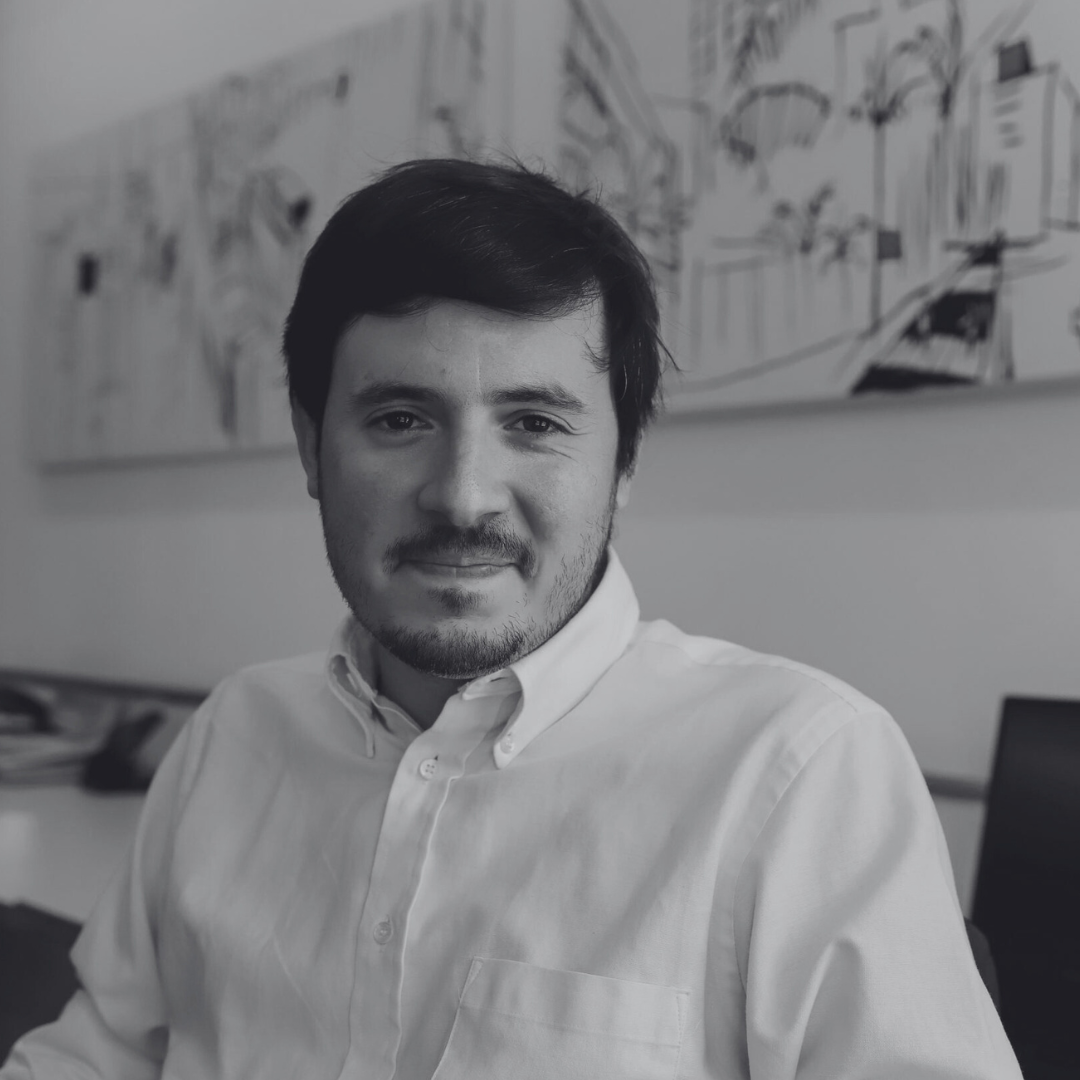
Chico is the Executive Director and co-founder of InternetLab. He is a lawyer, holding a bachelor’s, master’s, and doctoral degree from the University of São Paulo Law School (FDUSP). Currently, he is a professor in the Digital Law postgraduate program at Fundação Getúlio Vargas Law School in São Paulo and a member of the Steering Committee of the World Movement for Democracy.
He was a visiting researcher at the Center for the Study of Law and Society at the University of California, Berkeley (2013) and a member of the Electoral Law Commission of the Brazilian Bar Association — São Paulo Section (2019-2020). Also founded and coordinated the Law, Internet, and Society Nucleous at the University of São Paulo (NDIS-USP, 2012-2014, 2016-2019).
Chico is co-author of the books “Sobrevivendo nas Redes: Guia do Cidadão” (Moderna, 2018), “Direito Eleitoral na Era Digital” (Literacy, 2019) and “A Internet no banco dos réus” (IASP, 2017) and author of the book “Novo jogo, velhas regras” (Letramento, 2020).
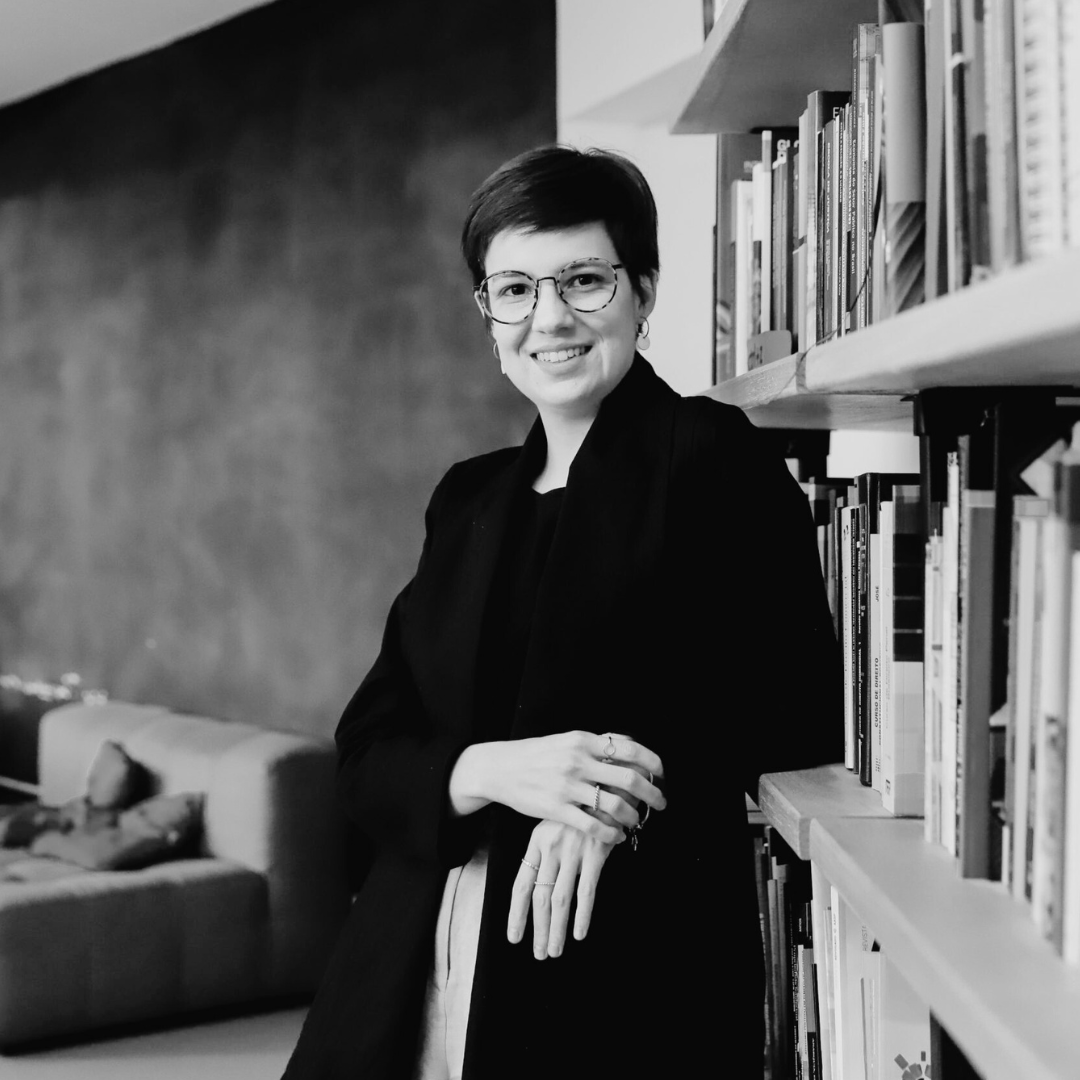
Director of Research and Operations at InternetLab. MSc in Sociology of Law at the University of São Paulo, where she also earned her Bachelor of Laws degree (LL.B., 2018). She was a visiting student at the Paris School of International Affairs (PSIA), at the Institut d’Études Politiques de Paris (Sciences Po – Paris), focusing on Human Rights (2016-2017), on a scholarship based on academic merit from the International Exchange Scholarship Program – University of São Paulo. She was a researcher of the Human Rights Law Clinic at FDUSP (2014-2015), and also of the Nucleus of Law Anthropology at FFLCH-USP (2015-2016). At InternetLab, she is responsible for overseeing research projects, representing the organization, and managing the organization’s operational, administrative, and financial facets. Her areas of expertise include content moderation and platform regulation; political communication, elections, and electoral law in the digital realm; misinformation and disinformation; freedom of speech; and personal data protection.
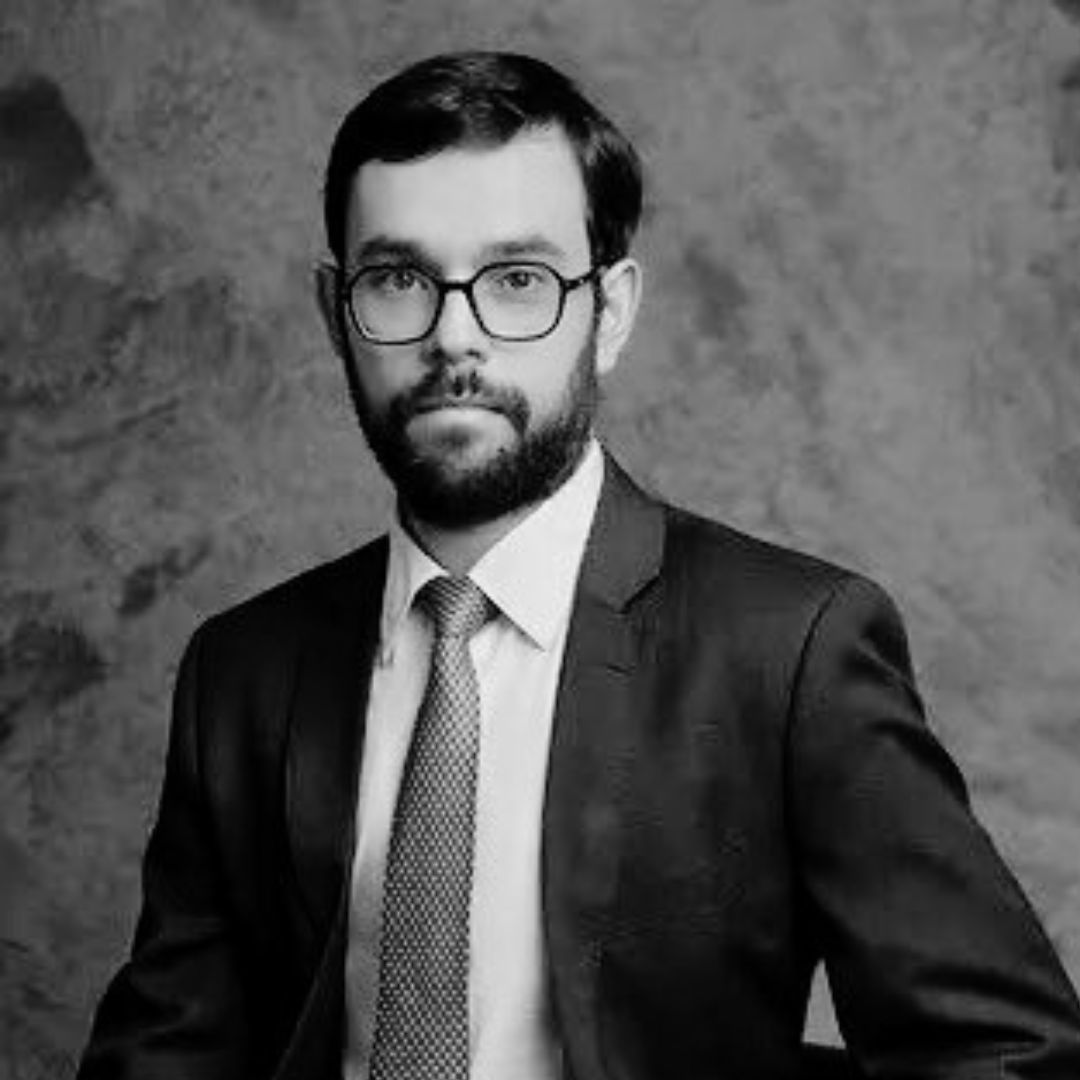
PhD from the Faculty of Law at the University of São Paulo (USP), with academic distinction, in the Department of Criminal Procedural Law. Holds a Master’s degree in Law and Development, with distinction and honors, from the São Paulo Law School of Fundação Getúlio Vargas (FGV DIREITO SP).
Holds a law degree from the Faculty of Law at the University of São Paulo (USP). Has research experience in Public Law and Criminal Procedural Law, and was awarded distinction at the Training School of the Brazilian Society of Public Law (SBDP) in 2010.
He was the research leader of the project “Judiciary and Access to Information in the São Paulo Court of Justice” at InternetLab (2015). He is a partner at Mudrovitsch Advogados, coordinating the area in São Paulo, specialized in Criminal Law and Criminal Procedural Law.

PhD in Law from the Faculty of Law at the University of São Paulo and a lawyer. She holds a Master’s degree in Law from the University of California, Berkeley (USA), with focus on Law and Technology, and from Ludwig-Maximilians-Universität München (Germany), with focus on Fundamental Rights. She was a member of the Commission of Jurists of the Brazilian Chamber of Deputies responsible for drafting the Bill on Data Protection for Public Security and Criminal Investigations. She served as a visiting research assistant at the Berkman Klein Center for Internet and Society at Harvard University, attended the Summer Doctoral Programme at the Oxford Internet Institute, and was the coordinator of the “Privacy and Surveillance” area at InternetLab, an independent research center on Law and Technology.
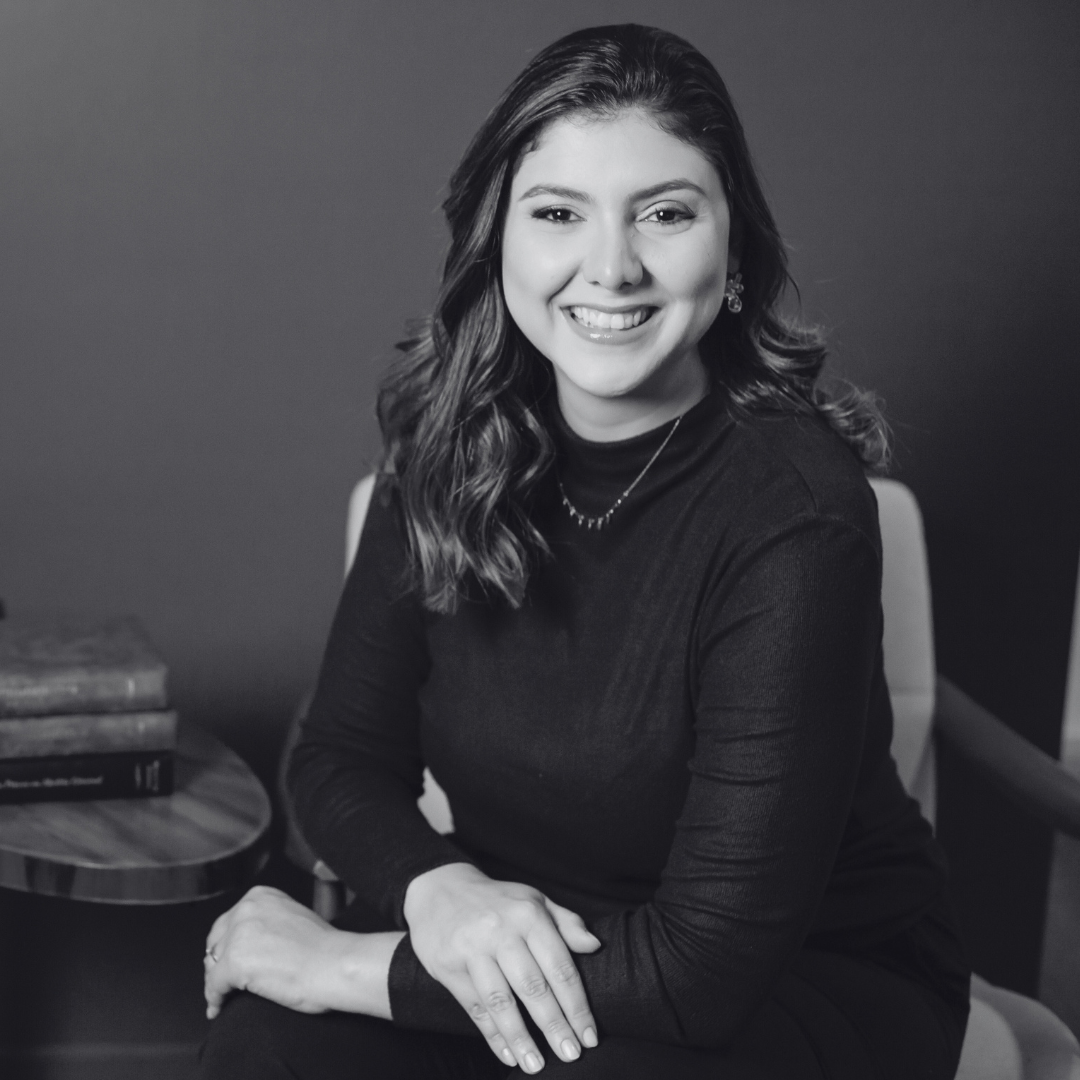
PhD in Law from the Pontifical Catholic University of Minas Gerais, currently undertaking Postdoctoral research at the Pontifical Catholic University of Rio Grande do Sul. Holds a Master’s degree in Law from the Federal University of Minas Gerais. Criminal Defense Lawyer.
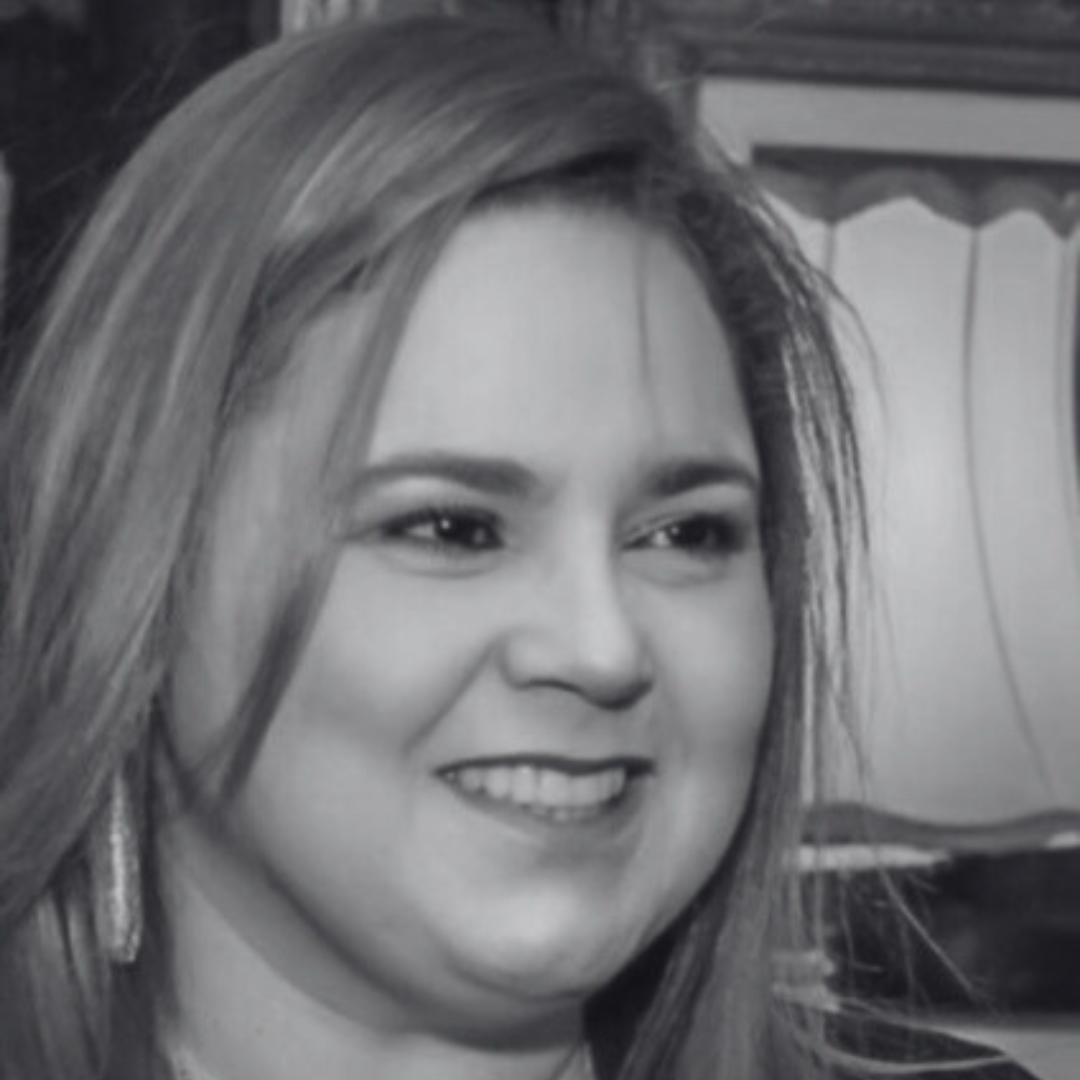
Associate Professor in the Department of Public Law at the Federal University of Rio Grande do Norte (UFRN). PhD in Law from the State University of Rio de Janeiro (UERJ) with a doctoral internship at the University of Castilla-La Mancha. Research internship at the Max Planck Institute for the Study of Crime, Security and Law. Judge of the Court of Justice of Rio Grande do Norte (TJRN), currently assisting the Presidency of the National Council of Justice (CNJ).

Intelligence Officer at the Brazilian Intelligence Agency (ABIN), leader of the Working Group for the development of intelligence legislation at Intelis – Union of Intelligence Professionals of ABIN. She works in the management of Technology and Information Security projects and has held management and technical advisory positions at ABIN and the Executive Secretariat of the Government Secretariat of the Presidency of the Republic (2022). Member of the LideraGOV Network of the Federal Executive Branch, she holds a Bachelor’s and Master’s degree in Law from the University Center of Brasília (2012), with an exchange program at the Universidad Nacional del Litoral (2011), and a PhD from the University of Brasília (UnB), with an exchange at Cornell Law School. She worked at the Presidency of the Supreme Federal Court (2010/2011), practiced law (2012/2019), taught at the University Center of Brasília (2012-2019), and was a Visiting Professor at Cornell Law School (2014-2015). She has expertise in Constitutional Law, Criminal Law, Criminal Procedure, and International Law.
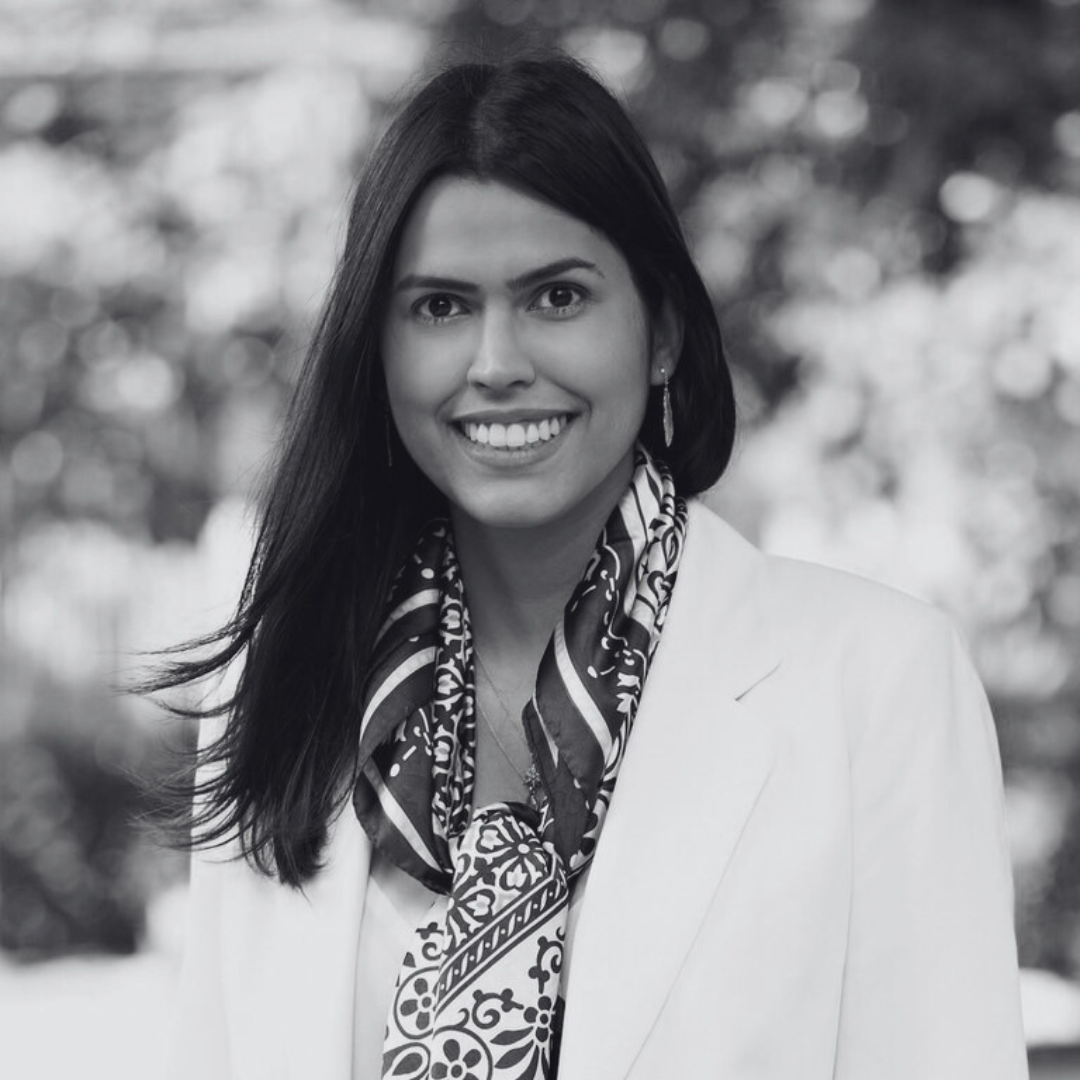
PhD and BA in Law from the University of São Paulo (USP), with a period of international mobility as a visiting researcher at Harvard Law School at the Institute for Global Law and Policy (IGLP). She took part in the exchange program at the Institut d’Études Politiques de Paris (Sciences-Po), was the coordinator of the Law and Poverty Group at the USP Law School and a substitute doctoral professor of commercial law at the University of Brasília (UnB). She worked as an advisor to Justice Ricardo Lewandowski at the Federal Supreme Court (STF) and at the Ministry of Justice and Public Security (MJSP). She is the MJSP’s Digital Rights Secretary.

Professor of Criminal Procedural Law at the Faculty of Law at the University of São Paulo (USP). Holds a Master’s and PhD in Criminal Procedural Law from the same institution. Deputy Coordinator of ESEM-USP. Board Member of InternetLab. Former President of IBCCRIM (Brazilian Institute of Criminal Sciences) and the Ibero-American Network of Criminal Advocacy. Lawyer.
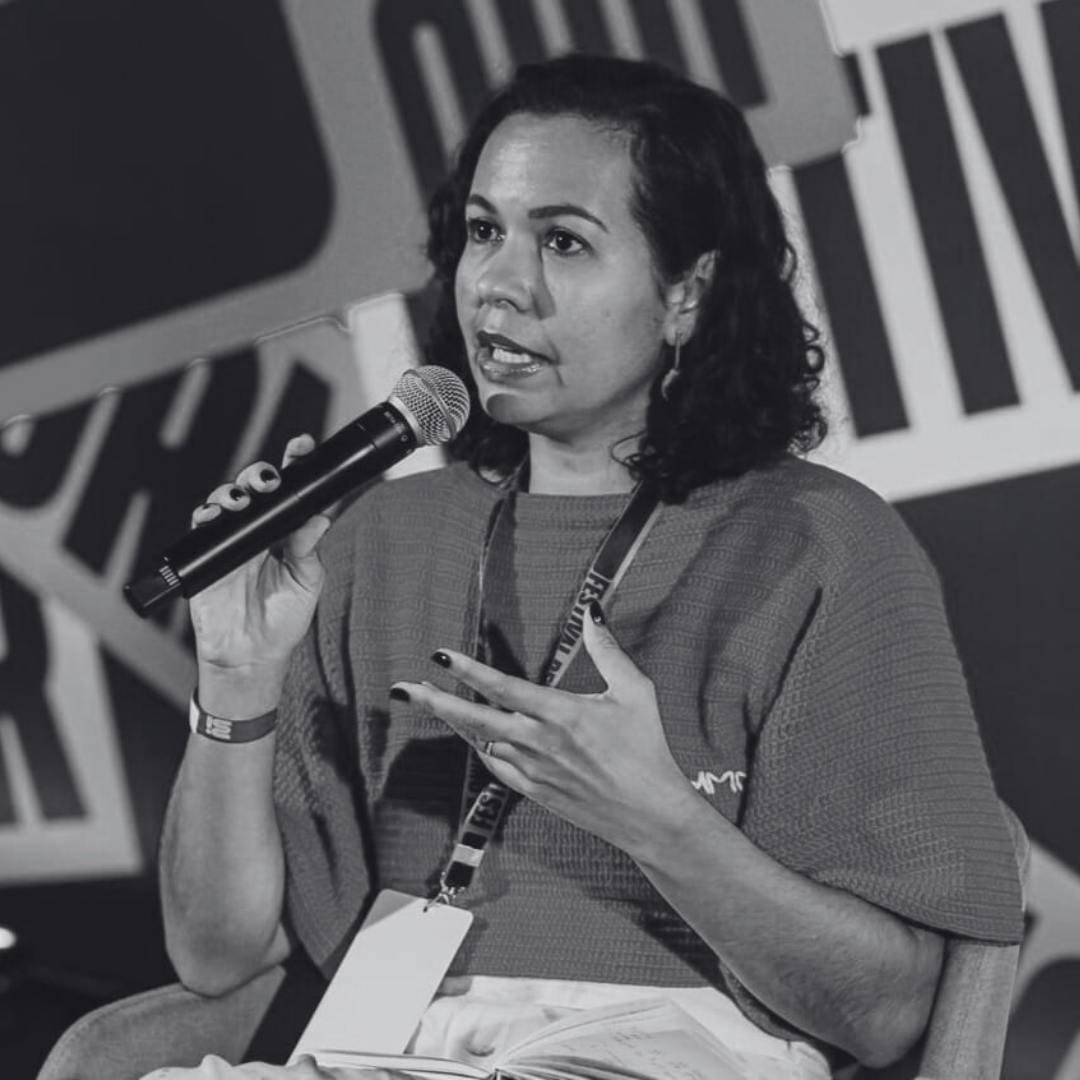
Nina Santos is the director of Aláfia Lab, general coordinator of *desinformante and a researcher at the National Institute of Science and Technology in Digital Democracy (INCT.DD) and at the Centre d’Analyse et de Recherche Interdisciplinaires sur les Médias (Université Panthéon-Assas). She is a member of the International Panel on the Information Environment, of the coordination committee of the Global Coalition for Tech Justice and of the Superior Electoral Court’s Committee on Digital Integrity and Transparency on Internet Platforms. She is also a professor on the postgraduate course in Digital Communication Strategies at FGV and at the master’s course in communication, information systems and media at Université Sorbonne-Nouvelle and author of the book “Social media logics: Visibility and mediation in the 2013 Brazilian protests” (Palgrave Macmillan, 2022).

Holds a PhD and Master’s degrees in International Law from the Faculty of Law at the University of São Paulo, with visiting fellowships at the Lauterpacht Centre for International Law at the University of Cambridge and the Max Planck Institute for Comparative Public Law and International Law. Holds a Bachelor’s degree in Law from the Federal University of Paraná and in International Relations from Unicuritiba. Criminal Defense Lawyer and partner at Badaró Falk e Máximo Advogados.
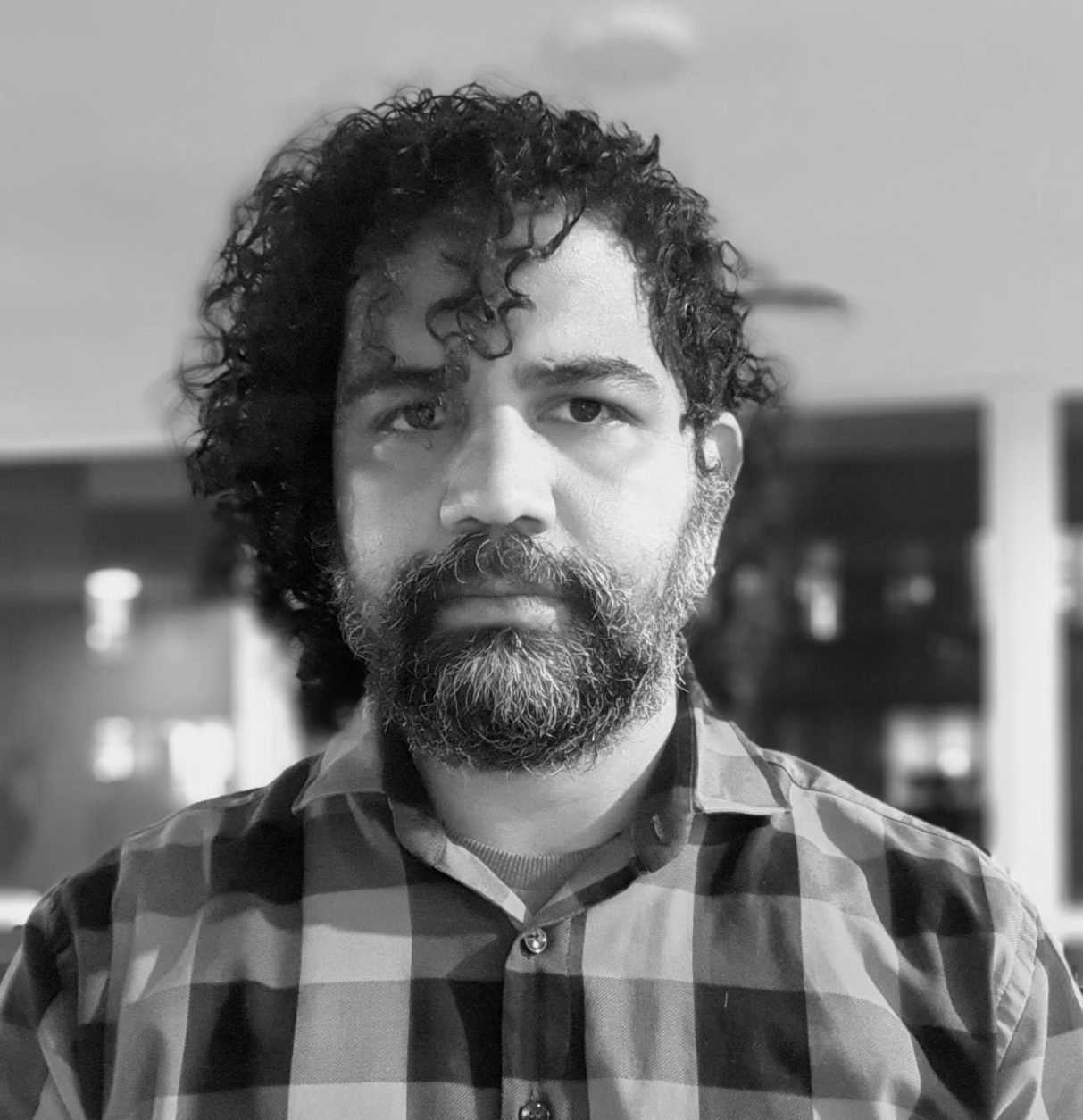
PhD candidate and holds a Master’s degree in Law, State, and Constitution from the University of Brasília. Researcher at the Institute for Internet and Society Reference – IRIS. Member of AqualtuneLab. He was the manager of the drafting process of the Brazilian Civil Rights Framework for the Internet (Marco Civil da Internet) at the Ministry of Justice.
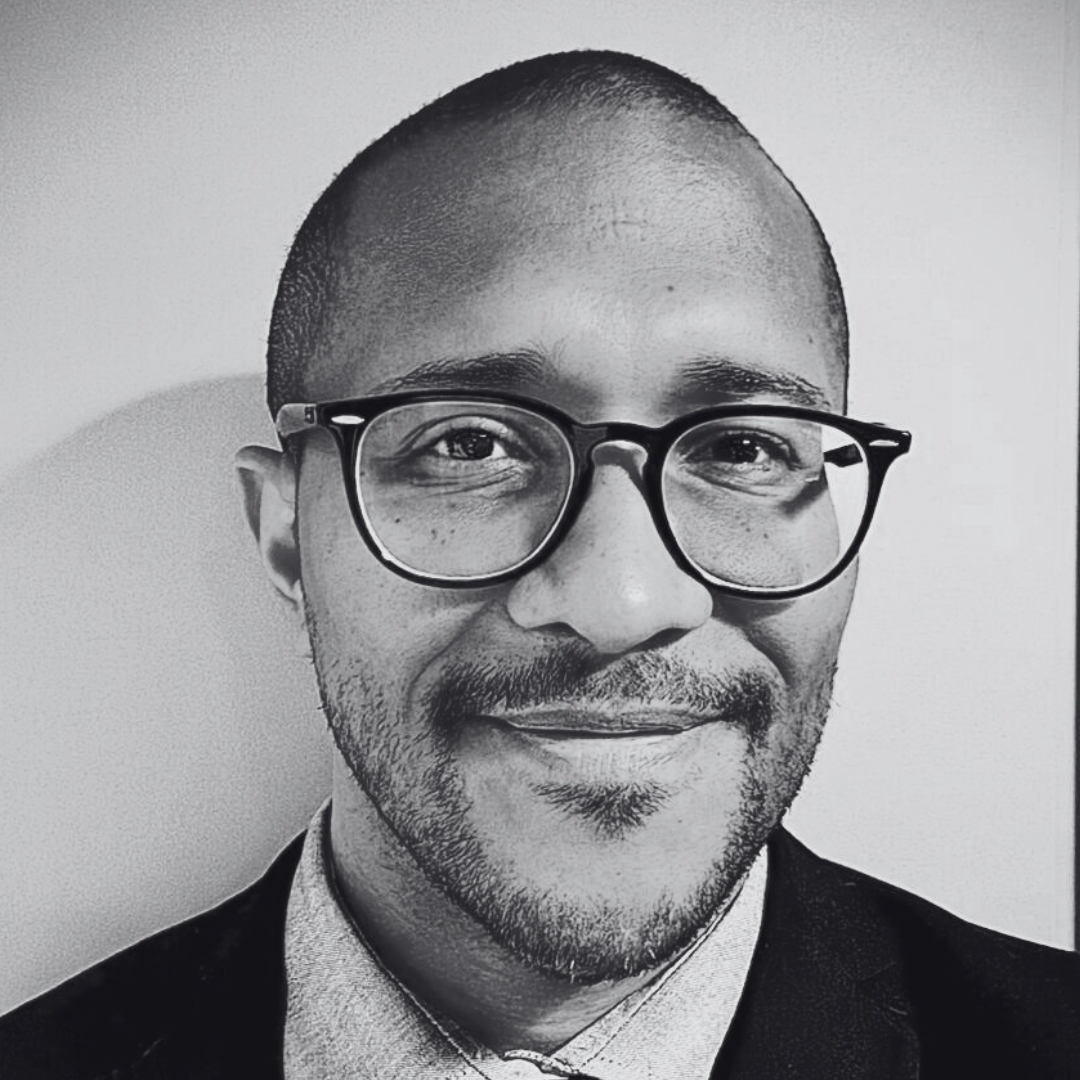
Chief of Police at Federal Police since 2003. PhD student in Legal Sciences at the University of Minho (Portugal). Master’s degree in Police Sciences, Criminology and Criminal Investigation from the Higher Institute of Police Sciences and Internal Security (Portugal), recognized as a Master of Laws by the University of Brasilia (UnB). Professor at the National Police Academy and the Federal Police Higher Police School. Coordinator of the Research Group on Organized Cybercrime (certified by CNPq) and of the First Postgraduate Course in Cybercrime at the PF’s Higher Police School. He was head of the Special Group to Combat Hate Crimes and Child Pornography on the Internet – GECOP/DDH (2008-2011) and of the Federal Police’s Cybercrime Repression Group in the Federal District – GRCC/DF (2012-2018). He is currently with the Federal Police’s Directorate for Combating Cybercrime.
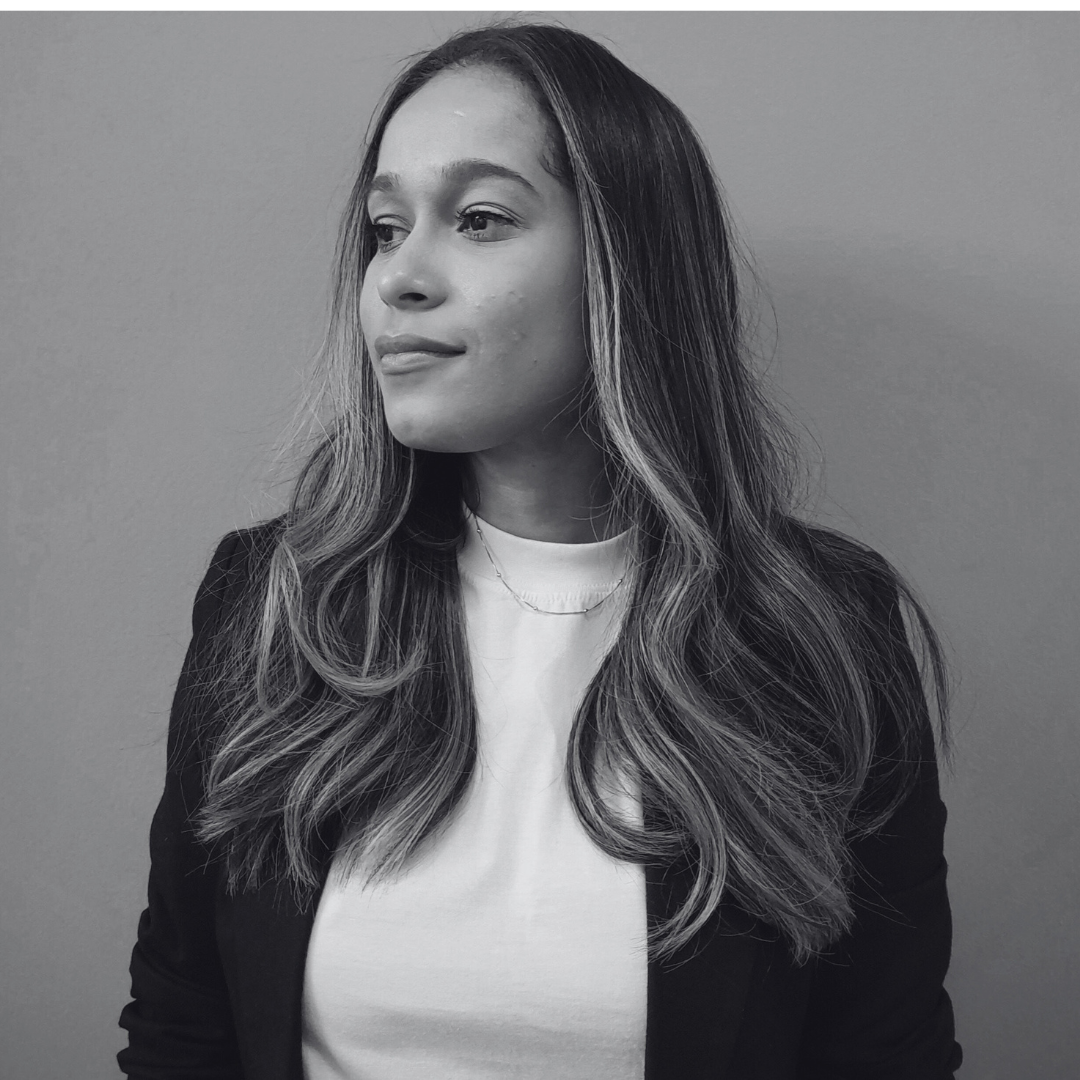
PhD in International Relations from the Pontifical Catholic University of Rio de Janeiro (PUC-Rio), where she also earned her Master’s degree. She holds a Bachelor’s degree in International Relations from the Federal Rural University of Rio de Janeiro. Research Coordinator for the “O Panóptico” project at the Center for Studies on Security and Citizenship (CESeC). Associate researcher at DATAS – Research Network on Data, Technocontrol, Authority, and Subjectivity at PUC-Rio; she was part of the human-computer interaction study group at the Oscar Sala Chair – USP, and a Fellow in Surveillance Studies at Vrije Universiteit Brussel. She has also been a researcher for the Observatory of Portuguese-Speaking Countries (OPLOP). Her areas of interest include Critical Studies of International Security, Algorithmic Governance, Classification and Quantification Practices in Contemporary International Politics, and Science and Technology Studies. She is currently conducting research on critical security studies, algorithmic governance, security technologies, AI, the Criminal Justice System, and the politics of technology.

